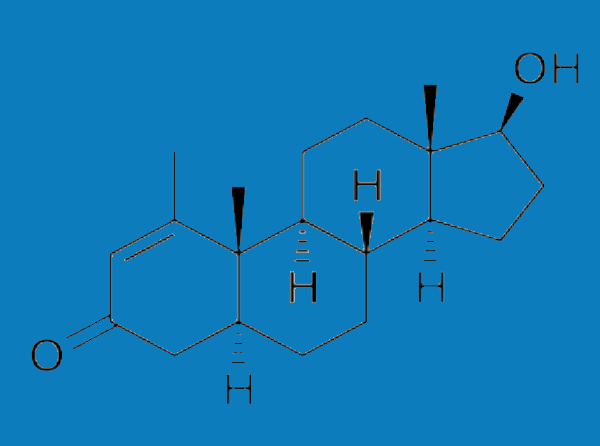Metenolon (Metenolone)

Metenolone, also known as methenolone, is a synthetic derivative of dihydrotestosterone (DHT), a naturally occurring hormone in the body. It belongs to the class of anabolic-androgenic steroids (AAS) and is commonly used in medical settings to treat conditions such as anemia and muscle wasting. Metenolone is available in both oral and injectable forms, with the oral formulation typically known as metenolone acetate and the injectable formulation as metenolone enanthate.
Medical Uses
Metenolone is primarily prescribed for the treatment of anemia associated with bone marrow failure, as it stimulates the production of red blood cells. Additionally, it may be used in the management of conditions characterized by muscle wasting, such as HIV/AIDS-related muscle loss or certain types of cancer.
Pharmacology
Metenolon exerts its effects by binding to androgen receptors in various tissues throughout the body, including skeletal muscle, bone, and the hematopoietic system. As an androgen receptor agonist, metenolone promotes protein synthesis and nitrogen retention, leading to anabolic effects such as increased muscle mass and strength. It also has mild androgenic properties, which may contribute to its potential for improving athletic performance.
Side Effects and Risks
Like other anabolic-androgenic steroids, metenolone carries the risk of various adverse effects, particularly when used in high doses or for prolonged periods. Common side effects may include liver toxicity, cardiovascular complications (such as hypertension and dyslipidemia), suppression of natural testosterone production, and psychiatric effects (such as mood swings and aggression). In women, virilization symptoms such as deepening of the voice and enlargement of the clitoris may occur.
Legal Status and Regulation
Metenolone is classified as a controlled substance in many countries due to its potential for abuse and misuse in non-medical settings, particularly in the context of performance enhancement in sports. In some regions, it is available only by prescription and is subject to strict regulatory controls to prevent unauthorized use.
Interactions and Contraindications
Metenolone may interact with other medications or substances, including anticoagulants, insulin, and oral hypoglycemic agents, potentially affecting their efficacy or increasing the risk of adverse reactions. Additionally, individuals with a history of liver or kidney disease, cardiovascular disorders, or prostate cancer may be at increased risk of complications with metenolon use and should exercise caution or avoid its use altogether. Pregnant or breastfeeding individuals should also avoid metenolone due to the potential for harm to the fetus or nursing infant.
Monitoring and Follow-Up
Patients receiving metenolon therapy should undergo regular medical monitoring to assess their response to treatment, monitor for any adverse effects, and adjust dosage as needed. Blood tests may be performed to evaluate liver function, lipid levels, and other relevant parameters. It is essential for patients to communicate openly with their healthcare provider about any concerns or changes in symptoms experienced during treatment with metenolone to ensure safe and effective management of their condition.
Conclusion
Metenolone is a synthetic steroid medication with both anabolic and androgenic properties, primarily used in medical settings to treat anemia and muscle wasting conditions. While it can be effective for these purposes when used under the supervision of a healthcare professional, it also carries the risk of adverse effects and is subject to regulatory controls due to its potential for misuse. Individuals considering the use of metenolone should consult with a qualified healthcare provider to weigh the potential benefits and risks in their specific circumstances.
FAQ
Can metenolone be used for bodybuilding or athletic enhancement purposes?
While some individuals may misuse metenolone or other anabolic-androgenic steroids for performance enhancement or bodybuilding purposes, such use is illegal and associated with serious health risks. Additionally, long-term use of metenolone for non-medical purposes can lead to dependency, withdrawal symptoms, and irreversible physiological changes.
What should I do if I miss a dose of metenolone?
If you miss a dose of metenolone, take it as soon as you remember. However, if it is almost time for your next scheduled dose, skip the missed dose and continue with your regular dosing schedule. Do not double the dose to make up for a missed one, as this can increase the risk of adverse effects.
How long does it take to see results with metenolone therapy?
The onset of therapeutic effects with metenolone therapy may vary depending on the individual’s medical condition, dosage, and treatment duration. Some patients may experience improvements in symptoms such as fatigue or muscle weakness within a few weeks of starting treatment, while others may require longer periods to achieve noticeable benefits. It is important to continue taking metenolone as prescribed by your healthcare provider and attend follow-up appointments to assess treatment progress.



